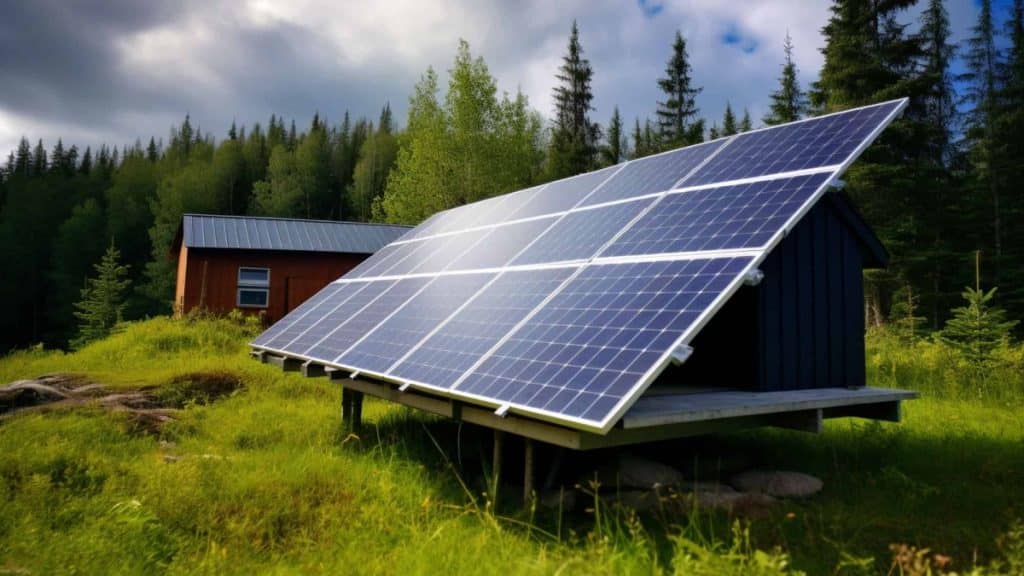Off-grid living has become an increasingly popular lifestyle choice for Australians seeking independence, sustainability, and reduced reliance on traditional utilities. While living off the grid once conjured images of remote bushland cabins and rugged survivalists, modern advancements in technology have transformed it into a feasible and comfortable way of life. At the heart of this transition is solar energy, complemented by a host of other innovative technologies that make self-sufficiency a reality.
The Role of Solar Energy in Off-Grid Living
Solar energy is the cornerstone of off-grid living, providing a reliable and renewable source of electricity. Thanks to Australia’s abundant sunshine, solar panels are an ideal solution for capturing energy to power homes, appliances, and even vehicles however, solar power alone isn’t enough to sustain an off-grid lifestyle. Integrating advanced battery storage solutions ensures that excess energy generated during the day can be stored and used during the night or on cloudy days. This is especially critical for ensuring a consistent power supply. For those exploring off-grid systems, solar solutions designed for residential use offer a comprehensive and efficient way to harness and manage solar energy. These systems optimise energy production while ensuring minimal waste, making them a key component of sustainable living.
Pairing Solar with Complementary Technologies
While solar energy forms the backbone of off-grid setups, pairing it with complementary technologies enhances efficiency, convenience, and comfort. Some of the most effective combinations include:
- Wind Turbines: Adding wind power to your system is an excellent way to generate electricity when the sun isn’t shining. Coastal or open areas with steady winds can benefit greatly from this hybrid approach, ensuring energy production continues regardless of weather conditions.
- Rainwater Harvesting Systems: Living off the grid isn’t just about electricity – it’s also about water. Rainwater harvesting systems collect and store rainwater for household use, such as drinking, cooking, and irrigation. Combining this with solar-powered pumps ensures you have a reliable and sustainable water supply.
- Energy-Efficient Appliances: Maximising the efficiency of your energy usage is crucial. Investing in energy-efficient appliances can significantly reduce your power consumption, allowing your solar system to meet more of your energy needs. Look for appliances with high star ratings and consider off-grid-friendly solutions like DC-powered refrigerators and LED lighting.
- Backup Generators: Even with solar energy and storage, there may be occasions when extra power is needed. Backup generators, preferably running on sustainable fuels like biodiesel, provide an additional safety net to keep your home powered during prolonged periods of low energy production.
- Smart Energy Management Systems: Modern off-grid living is as much about technology as it is about sustainability. Smart energy management systems help monitor and optimise energy usage, ensuring you get the most out of your solar and other energy sources. They also allow for seamless integration of multiple technologies, giving you complete control over your off-grid setup.
Environmental and Economic Benefits
One of the greatest advantages of off-grid living is the environmental impact. By reducing reliance on fossil fuels and utilising renewable energy, households can significantly lower their carbon footprint. On top of this, while initial setup costs may seem high, off-grid systems often result in long-term savings. With rising electricity prices, investing in solar energy and complementary technologies can be a cost-effective choice.
Is Off-Grid Living Right for You?
Off-grid living offers the chance to embrace a lifestyle of independence and sustainability, but it requires careful planning and investment in the right technologies. From robust solar solutions to advanced water and energy systems, the possibilities for creating a comfortable, self-sufficient home are limitless. Whether you’re considering an off-grid property in rural Australia or want to transition your current home to a more sustainable model, combining solar energy with other technologies can pave the way for a greener, more autonomous future. By leveraging these innovations, you can enjoy all the comforts of modern living while treading lightly on the planet.

